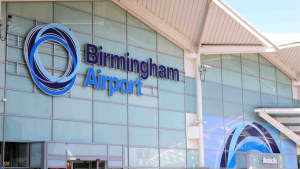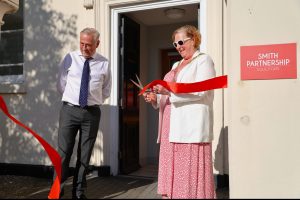Business leaders not surprised at interest rates

BUSINESS leaders in the West Midlands said the Bank of England’s decision to keep the cost of borrowing at its historic low came as little surprise.
The Monetary Policy Committee yesterday agreed to keep the base rate at 0.5% – meaning the rate has remained unchanged for more than 12 months.
Mark Smith, regional chairman at PricewaterhouseCoopers in the Midlands, said: “Despite recent upbeat signs on the improving health of the economy, in particular an upturn in regional deal activity, with a general election on the horizon, it was always going to be unlikely that the committee would suddenly tighten monetary policy.
“Though recent data has shown that the economy bounced back from a miserable January, future growth is likely to continue be subdued and gradual. As such we can expect interest rates to remain at their current historic lows for the short term and the door kept open to further quantitative easing.”
He said with the General Election just weeks away, Midlands businesses and consumers would be focusing on what the next government might do to tackle the public finances and how this might impact on their bottom line.
Roger Bootle, economic adviser to Deloitte, said: “The MPC is still waiting to see how the effects of its past asset purchases pan out. But based on the evidence so far, I think that the Committee will only be disappointed.
“Anyone expecting interest rates to rise before the end of the year is barking up the wrong tree. As the economic recovery starts to struggle, I expect a further loosening of monetary policy.”
He said that having left interest rates and its programme of asset purchases unchanged again this month, the Committee clearly remained in wait and see mode.
“What’s more, its concerns about loosening policy further while inflation is so far above target are likely to keep the MPC on hold for a while longer, particularly given the added uncertainty due to the general election,” he added.
Graham Aylott, policy officer at the Coventry and Warwickshire Chamber of Commerce, said: “The MPC recognises that the economic recovery is fragile and needs nurturing.
“At this stage, any rate rises could do damage to any upturn and we would expect rates to remain at this level into the summer.”
Harvey Williams, RICS West Midlands spokesman, said: “Now that the General Election has been called there is an air of uncertainty in the marketplace and the onus will be on whoever comes into power to maintain the tentative signs of recovery that the UK economy has seen so far.
“RICS feels that the base rate is likely to be left on hold at 0.5% until the latter part of 2010 as this will enable the MPC to review whether or not the recovery is living up to its growth forecasts.”
“The quantitative easing programme has undoubtedly led to signs of improvement in the West Midlands, in the housing market in particular, however the Bank will continue to keep a close eye on the effects on the UK economy and we would not rule out an extension of the programme later in the year.
“House prices in the West Midlands have definitely showed signs of stabilising in the early part of 2010, despite the harsh winter and even in spite of a late return to further snow flurries in early spring. We’ve seen a slightly more flexible approach from lenders emerging which is crucial for the provision of mortgage finance and this is combined with the fact that those looking to buy outstrips the numbers of those looking to sell,” he added.
John Phillips, regional director of the Institute of Directors, welcomed the decision to leave interest rates on hold.
He said: “Against the backdrop of an impending General Election and an economy that is still weak, this is the decision we expected.
“With the business environment remaining difficult there is compelling case for keeping monetary policy loose for the foreseeable future. Any change in advance of an election might also have been perceived as having a political motive.”
Lai Wah Co, CBI head of economic analysis, said: “We weren’t expecting the Bank to change interest rates or its quantitative easing policy this month, as the MPC is waiting to see how the balance of risks to the economic outlook plays out.
“Growth in the economy looks to have held up over the first quarter, albeit at a slow rate, but there are still uncertainties about the strength and sustainability of the recovery this year.
“At last month’s MPC meeting, some members were more concerned about the upward risk to inflation from higher energy prices and weak Sterling, so it will be interesting to see how the Bank re-evaluates its inflation outlook when it publishes new forecasts next month.”
Lee Hopley, chief economist to EEF, the manufacturer’s organisation, said: “The decision to hold rates and the asset purchase programme was expected given the economic and electoral uncertainty. Most economic activity indictors are still moving in a positive direction and while higher inflation has been more persistent than expected, this should begin to subside before the end of the year.
“However, the big economic questions have still to be addressed and the MPC’s stance is right until those have been answered.”









